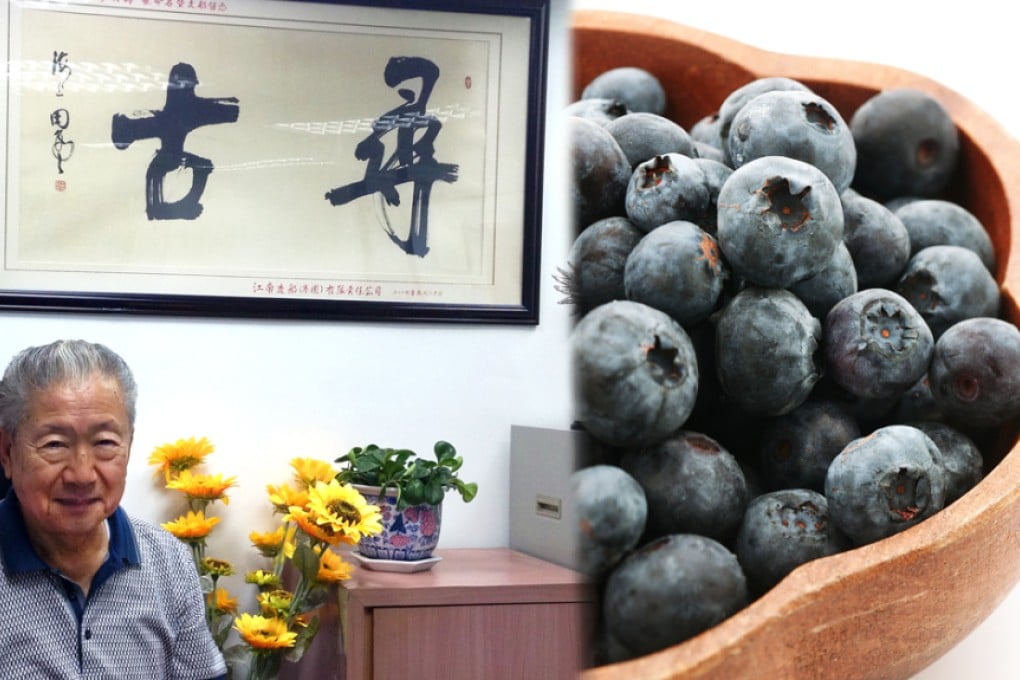Retired Chinese shipping billionaire cultivates taste for organic blueberry farming
Steve Hsu, 81, ex-boss of Hong Kong-based Oak Maritime Group, not focused on profits - only growing the fruit that improved his eyesight after eating bowl of berries every day one summer

Many Chinese people start growing flowers and plants as a pastime during their retirement, but 81-year-old Steve Hsu is slightly different – he has spent US$3 million growing organic blueberries and camellia trees producing tea seed oil on about 130 hectares of farmland.
An increasing number of wealthy mainlanders are keen to eat healthier foods and appreciate the benefits of organic products, which are starting to become more affordable. So this is only a beginning
Hsu, a mainland billionaire whose family’s shipping company has been in business for 90 years, is not out to emulate “Tobacco King” magnate Chu Shijian, the former owner of the Yunnan Hongta Group, who earned himself another fortune from growing oranges.
Instead, Hsu, who was born and raised in Shanghai, but now lives in Hong Kong, has gone back to nature as an organic farmer simply as a way to enjoy his retirement.
Mindful of the frequent food safety scandals that occur on the mainland, he decided to produce enough blueberries and tea seed oil to serve the needs of other potential customers, but making a profit is not really part of his plans.
His focus on farming started eight years ago – while still chairman of Hong Kong-based Oak Maritime Group, which owns the Taiwan-listed shipping company, Sincere Navigation Corp – when he discovered that his eyesight had suddenly improved.
He was sitting at home and was surprised that he was able to read his newspaper without using his glasses.
The improvement in his eyesight in 2007 came about after he spent the summer in Canada, where he had enjoyed a bowl of fresh blueberries every day.